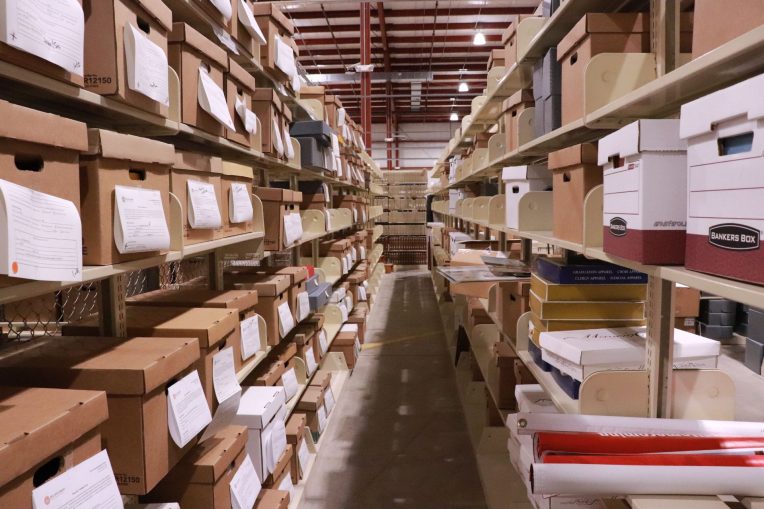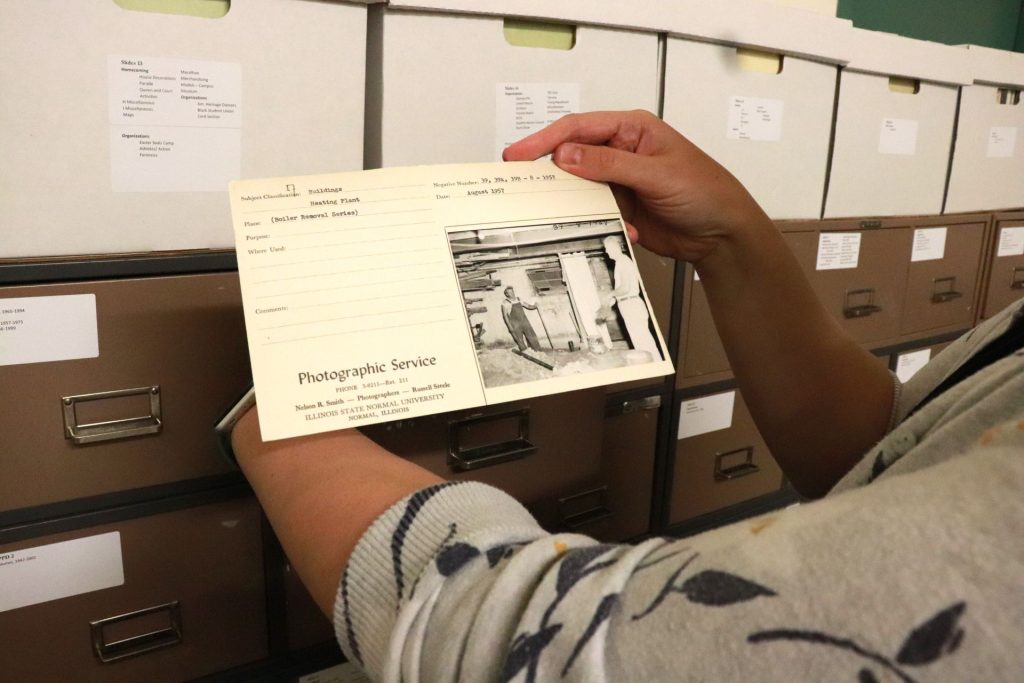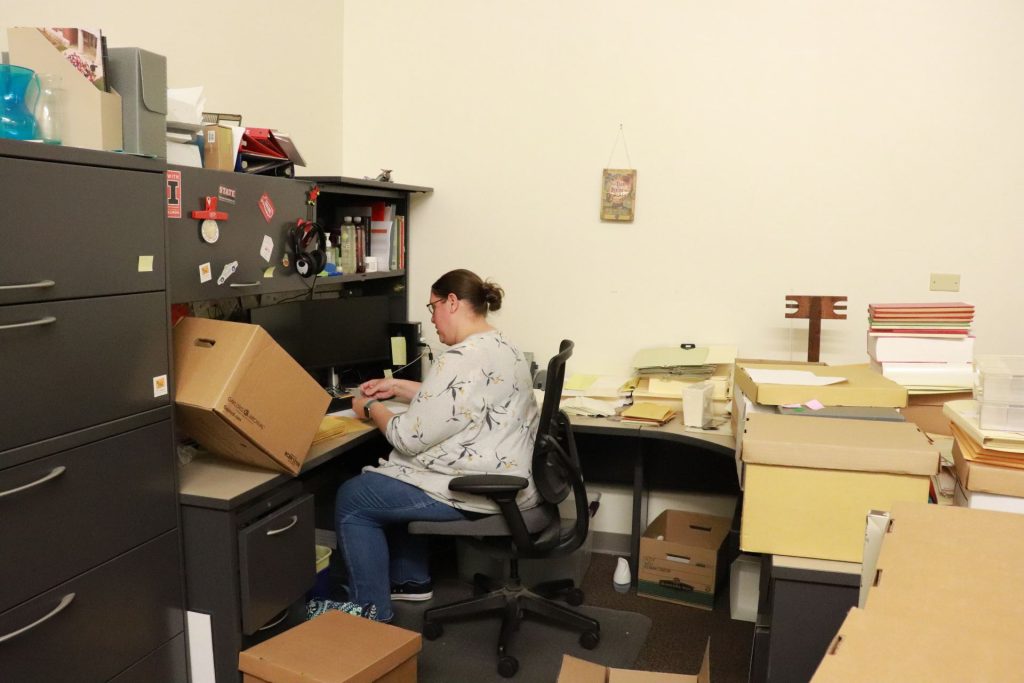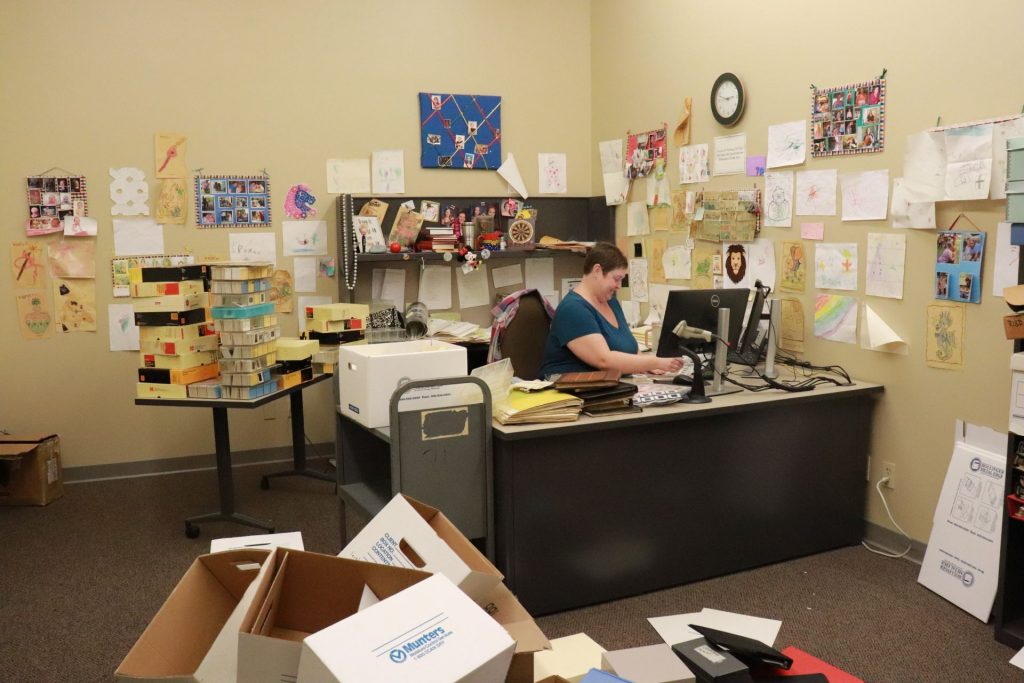The Dr. Jo Ann Rayfield Archives, part of Milner Library but housed in a large warehouse a few miles from campus, holds a trove of historical artifacts that paint a vivid portrait of Illinois State University since its founding. Faculty papers, presidential portraits, event memorabilia—anything that can be classified as institutional memory can find a home here.
But how does an event invitation or, in a famous example, a certain tracksuit from the show Glee, go from a desk drawer or a closet shelf to an official part of the University’s Archives? That’s where Senior Archives Specialists Julie Neville and Jenna Self come in. “We collect these items to be used,” Neville says. “The archives are a hands-on experience—it’s collected here so it can be seen.”
Neville and Self—along with University Archivist April Anderson-Zorn and Digital Archivist Donica Swann—are responsible for processing, arranging, cataloging, and adding to existing collections everything that gets donated to the archives. Neville, who is primarily responsible for adding newly donated materials to existing collections, says, “Our collections are all living. They don’t just get processed and forgotten.”
In addition to working with archival materials, Neville works with researchers who contact the archives with questions about collections, scheduling visits, or even just local curiosities. She and Anderson-Zorn also collaborate on the archives’ social media accounts, where they post content such as throwback photos of campus and video tours of parts of the collection.
“Our goal is that we make this history accessible to anyone who can benefit from it,” Neville says. She frequently receives questions from professors researching books or articles, but just as often, she works with local groups who have an interest in history or advocacy, such as the McLean County League of Women Voters.
“We process raw materials and we create a hierarchy—is this administrative, is it financial, is it memorabilia? We put everything into chronological order and then create a finding aid,” says Self, who is responsible for processing materials as they come in. “Once it’s processed, it all goes into acid-free folders and boxes for storage.”
Depending on the collection and the condition of the materials, processing can take a few weeks to several months.
“Collections tend to get smaller as we process because we don’t take anything that has personal information like social security numbers or banking information,” Self says. “But we need to look through every piece of the material to make sure that everything we can accept gets processed.”
Interested in donating to the archives but not sure what’s relevant? “We want more things than not,” Neville says. “Err on the side of giving.”
Self agrees: “We especially would love to see greater representation of BIPOC (Black, Indigenous, and people of color) alumni, faculty, and staff.”
No donation of materials is too small—or too large.
“That’s my favorite part,” Self says, “digging through the stuff and making this history come alive.”
For more information on the Dr. Jo Ann Rayfield Archives, including making an appointment for a tour or research, visit Milner Library’s website or call (309) 438-3546.




